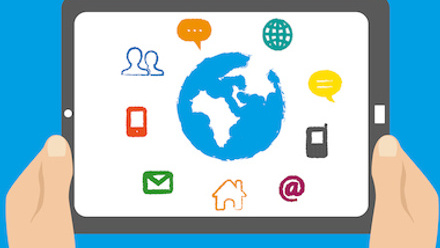How new approaches to wellbeing can establish sustained behavioural change

The coronavirus may only be 125 nanometres in size, but this unseen enemy has struck fear and an ardour for self-preservation into the human psyche.
Cardiovascular diseases and other risk factors, such as diabetes, obesity and high blood pressure, have been identified as being among the biggest reasons for COVID-19 complications. And this awareness, along with continual reminders of how and when to exercise during lockdown from media outlets, has led to an increased emphasis on physical fitness.
Indeed, Professor Kevin Fenton of Public Health England recently told us how “COVID-19 has given us a wake-up call to get our health back on track”.
It seems COVID-19 will be with us for some time to come, and the stress and uncertainty caused by this has also shone a spotlight on employee mental health, with the call for employer support intensifying.
Against this backdrop – and an acceleration of the shift to digital across all areas of our lives – the role of wellbeing technologies in supporting behavioural change in our post-pandemic world warrants careful review.
The wearable route to human-centric health
Employees are eager to embrace new health-related technologies, with our Global Benefits Attitudes Survey (2018) having found that around 50% of UK workers use technology to manage their health.
Now, more than ever, employers have an opportunity to capitalise on this trend, with heightened levels of awareness in recent weeks over the variety of digital wellbeing services and solutions that are available.
Wearable and monitoring technologies for example, such as sleep monitoring apps, fitness trackers and online nutritional diaries, have the capability to influence behavioural change by providing easy access to the types of health-related information needed to shape lifestyle choices.
To reinforce the benefits offered to employees by wearable technology, companies may look to subsidise these devices as part of their health and wellbeing programmes. Sections of the UK workforce that had been disengaged before the pandemic hit, may now be more receptive to taking greater control over their health, with many having participated in personal fitness regimes during lockdown.
With reassurances from employers that individual health-related data will remain private and secure, aggregated intelligence from such technology might also be used by companies to establish a wider picture of employee health. Where negative trends are identified, action can be taken to provide support and address contributory factors. The data may also help signpost future benefits provision.
Remote healthcare gathers momentum
The move to telemedicine in primary care has taken a big step forward with the NHS turning to remote consultations in a bid to minimise the risk of infection for staff and patients.
As we become increasingly accustomed to remote healthcare, this transformative trend is also likely to be felt in the corporate space. Virtual access for employees to GPs had already been gaining traction as it becomes an increasingly common offering from medical insurers and cash plan providers. We can expect this to accelerate in the wake of COVID-19.
Indeed, research conducted by us among UK employers during the pandemic found that more than a third (39%) of companies had already expanded or provided access to telemedicine.
Employee appointments with a virtual GP service can usually be arranged within just a couple of hours and can help accelerate early intervention to address health concerns. The services can even include integrated health tracking apps, the electronic delivery of prescriptions and medication reminders.
The digital route to positive mental health
The pandemic has forced many of us to come to terms with a new way of living and working – and the mental health challenges that have come with this period of heightened anxiety have been quite large.
As we look to recover, the effects of the pressures that many workers will have experienced will not have ended after lockdown restrictions were lifted. What’s more, the post-pandemic environment brings with it new challenges that many employees will have to contend with, from continuing anxiety over COVID and workplace interactions to job insecurities, bereavements and loneliness.
The NHS Confederation's Mental Health Network has pointed to a rising tide in demand for mental health care associated with the pandemic and has warned of NHS services being overwhelmed. Where they can do so, employers should look to step in to help close this gap and make it easier for workers to receive the help they need.
In a lot of cases, employee mental health support that would have previously involved traditional face-to-face counselling sessions took place using online video conferencing during lockdown. According to our research, almost two-thirds (65%) of employers believe online mental health services offer an effective solution, and with users gradually becoming more familiar and comfortable with remote technology, we can expect its popularity to continue rising in the months ahead.
Downloads of popular mental health apps also surged during lockdown, reflecting an increasing need for emotional support.
Smartphones provide a simple, accessible, platform with which to engage workers and so by promoting access to apps that support mental wellbeing, employers can offer an effective, and low-cost, preventative approach to strengthening psychological resilience.
A wide range of research now supports the use of mindfulness as an effective tool for reducing the impact of stress, anxiety and depression, and some apps have gained a large following for their science-based meditation and mindfulness techniques.
While human interactions will remain a pivotal cornerstone of employee healthcare, employers are better-placed than ever to equip their workforces with the digital tools they need to improve their physical and mental health. And with 60% of businesses looking to enhance their wellbeing programmes in the wake of COVID-19, now could be the time for them to grasp the digital wellbeing baton.
The author is Mike Blake, wellbeing lead at Willis Towers Watson.
This article is provided by Willis Towers Watson.
In partnership with WTW
WTW is a leading global advisory, broking and solutions company.







